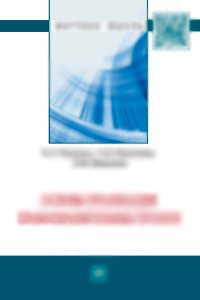Netherlands
Russian Federation
employee
Russian Federation
employee
Russian Federation
This monograph sums up the results of multidisciplinary scientific research of legal and institutional fundamentals relating to combatting corruption that were obtained within the National plan of combatting corruption for the period 2014–2015. It defines modern concepts of combatting corruption with due account given to new challenges and factors which are conducive to this socially negative phenomenon. The monograph reflects theoretical and methodological rules employed to monitor corruption elements and anticorruption measures, it also provides recommendations relating to the ways and means to liquidating the causes and conditions for corruption. Under consideration are traditional and new technologies of combatting corruption, potentials of legal responsibility for corruption crimes. It also gives recommendations for national anticorruption policy improvements that are based on international law tendencies and positive legal experience of international legislation. The thesis of this paper were broadly discussed at international and national science conferences, including the Fourth and the Fifth Eurasian anticorruption forum (Moscow, 2015 and 2016), and also during the sixth session of the Conference of States — members of the UN Convention on counteracting corruption (Saint Petersburg, 2–6 Nov. 2015). Theoretical conclusions and practical solutions highlighted in this publication can raise the effectiveness of national anticorruption strategies, give a new impetus to multidisciplinary and scientific studies of the legislation and law enforcement cases, and also get a greater number of people interested in this sphere – practicing lawyers, representatives of business community, graduates, and post graduates, legislative bodies, teachers, students, readers who face the problem of overcoming the problem of corruption.






